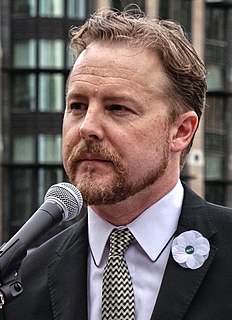A Quote by Walt Whitman
The shallow, as intimated, consider liberty a release from all law, from every constraint. The wise see in it, on the contrary, the potent Law of Laws.
Related Quotes
There must be a law if there is to be liberty. Try to play a piano and you will run into laws as fixed as the decrees of the Medes and Persians. But through those statutes you reach the songs, drudgery leads to delight. The law of Christ brings the liberty of Christ. Keep His statutes, and they become songs. The other side of commandment is conquest. What seems restraint to the outsider means release to you.
The doctrines thus delivered we call the revealed or divine law, and they are to be found only in the holy scriptures.. are found upon comparison to be really part of the original law of nature. Upon these two foundations, the law of nature and the law of revelation, depend all human laws; that is to say, no human laws should be suffered to contradict these.
The law has been perverted, and the powers of the state have become perverted along with it. The law has not only been turned from its proper function, but made to follow an entirely contrary purpose. The law has become a tool for every kind of greed. Instead of preventing crime, the law itself is guilty of the abuses it is supposed to punish. If this is true, it is a serious matter, and moral duty requires me to call the attention of my fellow-citizens to it.
To suppose arms in the hands of citizens, to be used at individual discretion, except in private self-defense, or by partial orders of towns, counties or districts of a state, is to demolish every constitution, and lay the laws prostrate, so that liberty can be enjoyed by no man; it is a dissolution of the government. The fundamental law of the militia is, that it be created, directed and commanded by the laws, and ever for the support of the laws.
Goddammit. Yeah, I have. First, there's a huge difference between being arrested and being guilty. Second, see, the law changes and I don't. How I stand vis-à-vis the law at any given moment depends on the law. The law can change from state to state, from nation to nation, from city to city. I guess I have to go by a higher law. How's that? Yeah, I consider myself a road man for the lords of karma.
The law is equal before all of us; but we are not all equal before the law. Virtually there is one law for the rich and another for the poor, one law for the cunning and another for the simple, one law for the forceful and another for the feeble, one law for the ignorant and another for the learned, one law for the brave and another for the timid, and within family limits one law for the parent and no law at all for the child.





































